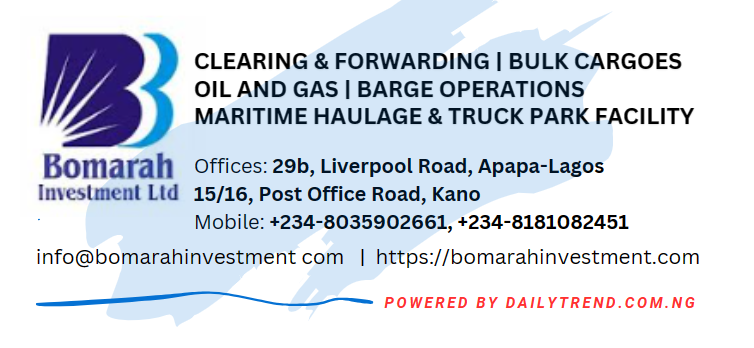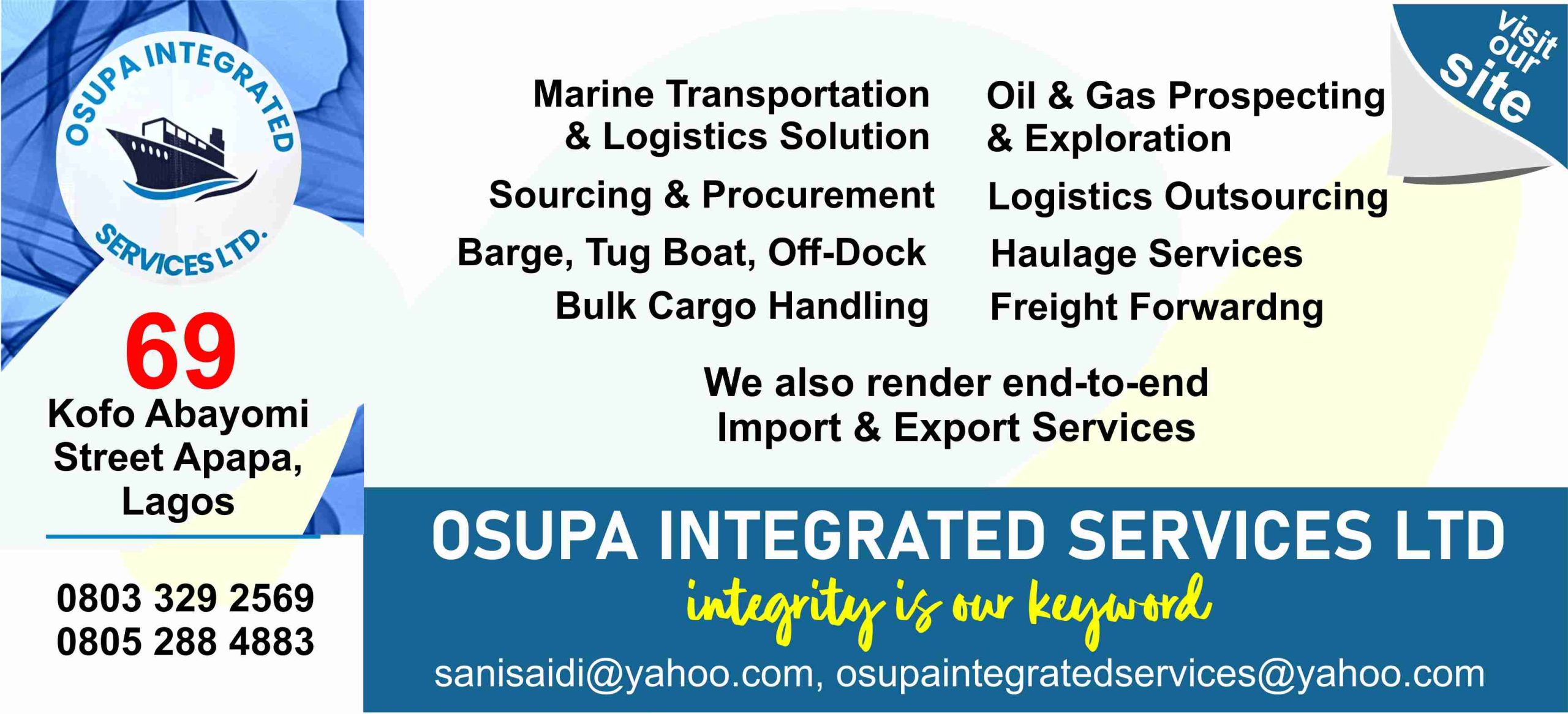World Maritime Day 2025: Oyetola Urges Action to Protect Oceans from Plastic Wastes, Harness Potentials Wisely

L-R: Public Relations expert and former Director Special Duties of NIMASA, Hajia Lami Tumaka, Registrar of Council for the Regulation of Freight Forwarding in Nigeria (CRFFN) Kingsley Igwe, Director of Maritime Services at Ministry of Marine and Blue Economy, Babatunde Bombata, Executive Director Marine and Operations of NPA, Eng Olalekan Badmus, Minister of Marine and Blue Economy, Adegboyega Oyetola, his permanent secretary, Olufemi Oloruntola, Executive Director Finance and Administration of NPA, Mrs Vivian Edet and another stakeholder at the commemoration of 2025 World Maritime Day celebration in Lagos on Thursday
—As NIMASA Laments $150bn Blue Economy Funding Gap
By DAPO OLAWUNI
In a powerful call to action on World Maritime Day 2025, Nigeria’s Minister of Marine and Blue Economy, Adegboyega Oyetola has urged Nigerians to protect the nation’s vast ocean resources from pollution and to harness their potential wisely.

Speaking at a ceremony to commemorate the WMD at Eko Hotel and Suites in Lagos on Thursday, Oyetola highlighted the critical role oceans play in the global economy and ecosystems, emphasizing the urgent need for a shift from exploitation to stewardship.
Themed “Our Ocean, Our Obligation, Our Opportunity,” Oyetola’s keynote address stressed that the ocean, which covers over 70% of the planet, is under mounting threat from pollution, overfishing, and climate change.
He called on citizens and maritime stakeholders to embrace sustainable practices to safeguard this vital resource.
“On this World Maritime Day, let us all renew our pledge to protect the ocean and harness its promise wisely and responsibly. The ocean is our shared legacy. Our obligation is to safeguard it. Our opportunity is to transform it for the benefit of generations to come. Let us meet this challenge, as a nation and as a responsible partner in the international system, ready to play our full part in shaping the future of maritime governance.
“The message is clear: we must be stewards, not exploiters. This requires us to enforce sustainable fishing practices, tackle marine pollution, safeguard biodiversity, and strengthen maritime safety and security.” He said
He reaffirmed the government’s commitment to modernizing port infrastructure and advancing marine governance as part of President Bola Ahmed Tinubu’s Renewed Hope Agenda.
Oyetola also announced Nigeria’s bid to return to Category C of the IMO Council, a move he believes will re-establish the country’s leadership role in global maritime governance.
Echoing the minister’s sentiments, the Director General of the Nigerian Maritime Administration and Safety Agency (NIMASA), Dr. Dayo Mobereola, underscored the ocean’s importance as the lifeblood of Nigeria as a nation, and a gateway for over 80% of Nigeria’s trade.

He detailed NIMASA’s efforts to combat pollution through its Marine Litter and Plastic Action Plan and also highlighted the critical need for private sector investment to address the significant funding gap in ocean health and the blue economy.
According to him, the blue economy remains one of the most underfunded sectors globally with $150 billion annual financing gap for Sustainable Development Goal 14, arguing that public funding will never be enough to close the gaps.
Speaking, he said “The beauty and the diversity of the Ocean are not just captivating but continue to inspire us all. The opportunities in the ocean are vast and must be harnessed sustainably, from fisheries and aquaculture, renewable energy, shipbuilding and repair, tourism, to port infrastructure development among others.
“Sadly, the blue economy remains one of the most underfunded sectors globally. According to the World Bank, Sustainable Development Goal 14 (Life below water) is one of the most poorly funded SDGs, with an annual financing gap of approximately USD 150 billion. It has been acknowledged globally that Public Funding will never be enough to close the gaps.
“To scale up financing for ocean health and the sustainable blue economy, the private sector must get involved. We need the right regulatory frameworks, incentive structures and de-risking mechanisms to mobilise the private sector and bring investment to the scale that is desperately needed”
Meanwhile, the Managing Director of the Nigerian Ports Authority (NPA), Abubakar Dantsoho, represented by Lekan Badmus, the Executive Director of Marine and Operations, assured stakeholders of the NPA’s commitment to promoting port eco-friendliness.
He called on every stakeholder to move beyond ceremonial celebrations and take concrete action to protect the ocean.
“Beyond fanfare, there is a need for every stakeholder here to rise from this celebration with a stronger commitment to take actions that make the ocean cleaner”
“Indeed, making global port operations eco-friendlier and actualising the other noble objectives of the World Ports Sustainability Program rests heavily on our shoulders as maritime stakeholders.” Dantsoho stated.







